

Aleks, finansmedarbejder
"Hej, mit navn er Aleks (hun/hende), og jeg arbejder som finansmedarbejder i Europa-Kommissionens Generaldirektorat for Budget (GD BUDG). Jeg arbejder primært med finansiering af grønne obligationer og koordinering af forvaltning af aktiver i EU. Jeg er også medlem af Kommissionens taskforce om ligestilling.
De kolleger i min enhed, bl.a. kontorchefen, som var de første, der kendte til min kønsidentitet, var meget støttende og bevidste om min transition. Da hele direktoratet senere fik kendskab til min identitet, kan jeg med sikkerhed sige, at jeg ikke har haft dårlige oplevelser overhovedet, men tværtimod har fået støtte og oplevet "venlig nysgerrighed". Jeg har også i samarbejde med den øverste ledelse udarbejdet nogle materialer om transkønnethed – et initiativ, som alle har taget godt imod. Transkønnede får et sikkert arbejdsmiljø i GD BUDG. Der er naturligvis stadig udfordringer, navnlig med hensyn til anerkendelse og de digitale administrative systemer, men der er ved at ske positive ændringer, og jeg er glad for at se og deltage i forskellige interne projektgrupper og grupper, der arbejder på, hvordan de nuværende systemer kan gøres endnu bedre.
Der er lang vej endnu, men vi går i den rigtige retning. Jeg tror, at transpersoner vil få en varmt velkomst i ethvert team i Kommissionen."
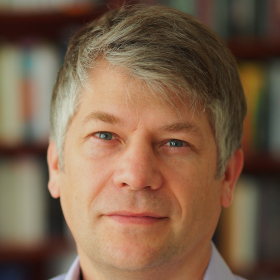
Gabor (European Commission)
“I started my Commission career in DG ECFIN and have been working for DG Competition in the last ten years as a member of the Chief Economist Team. This group of roughly 30 economists is involved in those competition investigations that require in-depth knowledge of economic theory or complex empirical contributions. Working at the Chief Economist Team gave me the opportunity to work on mergers and acquisitions in several industries, from petrochemicals to stock exchanges, and to contribute to some of the most interesting antitrust investigations concerning Google’s and Amazon’s digital services. Besides the case-specific work we are also involved in policy projects, for example I co-authored a study on how industrial concentration changed in Europe in the last 20 years. As an economist trained in empirical industrial organisation and interested in competition policy, this is indeed a great place to work.”
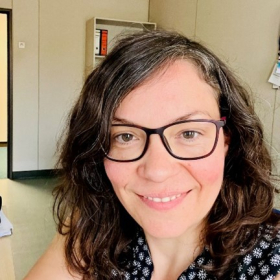
Soledad (Council of the EU)
“I joined the Council’s Directorate-General for Economic and Financial Affairs in 2016, and this is my second post here. In my first post I had the unique opportunity to be responsible for the negotiations on the Recovery and Resilience Facility, the main programme of NextGenerationEU, the post-pandemic recovery plan.
In my current post in the Budget and Cohesion Unit, I am in charge of the budget heading dealing with the Union’s external action, and as a result I was also fortunate enough to be responsible for the negotiations on the EUR 18bn macro-financial assistance package to Ukraine for 2023.
Before coming to the Council, I worked in DG FISMA at the Commission, and before that I worked at the European Parliament, where I had the chance to support the negotiations on the so-called six-pack and two-pack (the Stability and Growth Pact and the Macroeconomic Imbalances Procedure).
In sum, while I don’t work as a hardcore economist, my job does require the thinking, the knowledge and the type of analysis that an economist’s work does. Having a handle on the figures and being able to interpret them is always a valuable skill to bring to your work. And as you can see, you can switch institutions as and when it suits you, which also enriches your growth and your work – particularly, for example, during negotiations. I’m never bored!”
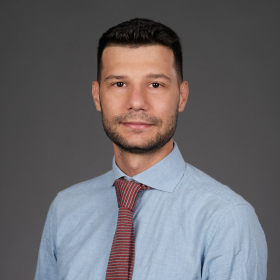
Preslav M, økonomiassistent
Jeg har arbejdet i Europa-Parlamentet i fem år. På mit kontor rådgiver og hjælper vi medlemmerne af Europa-Parlamentet (MEP'erne) med at administrere deres lokale assistenters og lokale serviceudbyderes kontrakter. "Lokal" betyder i denne sammenhæng, at operationerne finder sted i de lande, hvor medlemmerne af Europa-Parlamentet er valgt.
Min rolle er at sikre, at MEP'ernes anmodninger behandles professionelt, og at betalinger til deres personale og tjenesteydere foretages til tiden. En vigtig del af mit arbejde er at kontrollere og garantere disse transaktioners lovlighed og formelle rigtighed ved at sikre, at reglerne overholdes.
De mange forskellige situationer og spørgsmål, som jeg dagligt står over for, mens jeg har direkte kontakt med MEP'erne og deres assistenter, er det, jeg anser for det mest udfordrende, men også mest interessante aspekt af mit job. Det er desuden rart at vide, at mit arbejde bidrager til en forsvarlig og gennemsigtig forvaltning af Parlamentets finanser og budget.
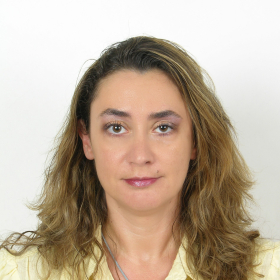
Yolanda (DG ECHO)
"Crisis management encompasses the response to emergencies, in Europe and around the world. Organised along the pillars of civil protection and humanitarian aid, crisis management, for DG ECHO, means tight deadlines, coordination with the other EU institutions and the Member States and with international organisations, travel, and, most of all, the sense that you are doing something that brings tangible benefits to millions. I work in communication – keeping the public informed on what the Union is doing in response to crises from the COVID-19 pandemic to the activation of the civil protection mechanism for Ukraine, to the organization of humanitarian air bridges to the strengthening of the EU’s firefighting fleet. Every day brings something different."
Sophie, European Commission
In this coordination unit, you have a very good overview of the DG and the pending ad upcoming MOVE proposals. It’s a perfect position to understand the working methods and dynamics of other institutions as well. It is extremely interesting to closely follow the proposals though the different stages of the co-legislation process and to see how the text evolves in the Council working parties/Coreper meetings and parliamentary Committees/plenaries, and later during the trilogue negotiations”.
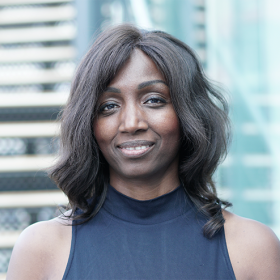
Adja (European Commission - Directorate General for Economic and Financial Affairs)
“Applying for EPSO’s competition for economists can be a great opportunity from many respects!
Hi, my name is Adja and I am a macroeconomist at the European Commission, DG ECFIN. I have a Ph.D. in applied international economics (major econometrics) from the University of Namur. Before joining the European Commission, I worked in the Federal Planning Bureau in Brussels.
Since 2019, I am working in the field of EU fiscal policy. I first spent some years in the unit in charge of the coordination of Member States’ surveillance in the context of the Stability and Growth Pact. Being in constant interaction with many units and colleagues across the DG, was a great experience, which definitely has developed both my practical knowledge on the application of the Pact, a cornerstone of the EU policy, and my leadership skills. It also widened my horizon as regards the different factors driving the EU fiscal policy and public debt developments.
As a result, I recently joined the unit responsible for monitoring and assessing the sustainability of EU public finances in relation to fiscal risks stemming, for instance, from ageing population and related issues (like pensions, health care and long-term care spending), green transition or banking sector. This is a very exciting job, involving a holistic approach to consider fiscal risks arising outside the realm of public finances stricto sensu, some of these risks being also part of the EU major challenges ahead.
So, what can you expect if you work for the European Commission?
- First, you will have the opportunities to deal with many challenges and responsibilities, that are linked to EU policies with a direct impact on Member States,
- Second, you will work with various talented and inspiring colleagues from different backgrounds, both cultural and professional ones.
- Finally, you will also have many occasions to be involved in a broad variety of topics ranging, for instance, from macroeconomic forecasts to the implementation of EU fiscal rules.
So just give it a try, have a look at the Notice of Competition and apply!”
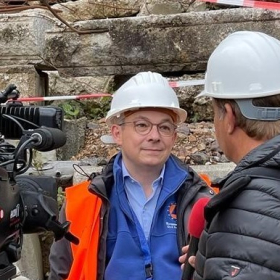
Felix (DG ECHO)
"I am a lawyer by training and have been working for the European Commission since 2005. I started my career in the legal team of DG Agriculture, then moved around inside the same DG, dealing with topics as diverse as international trade negotiations and organic farming. But after 10 very intense and interesting years, I moved to DG ECHO. I worked as an Assistant to the Director-General and later joined the Cabinet of the European Commissioner for Crisis Management. Especially these two assignments gave me a good overview of the diversity of work carried out by DG ECHO: From coordinating international emergency response in case of natural disasters in the EU to supporting humanitarian funding across the globe.
More recently, I became the Manager of a Unit of 27 colleagues that deal with the development of the Union Civil Protection Knowledge Network, a structure that will help civil protection and disaster management stakeholders to connect better and share knowledge. It also entails assisting in civil protection field exercises, organising expert trainings and many more things.
Working in DG ECHO is very special. Because it is essentially about helping people in need and preparing better for disaster. Ultimately, to save lives. I consider this a great privilege: to be part of what is probably one of the most noble policy areas of the Union. It is not about pushing paper, but delivering concrete help when it is most needed. And the COVID-19 pandemic as well as Russia’s aggression against Ukraine have shown how important it is to stand together in solidarity.
In fact, I would probably not have thought during my studies of international law at Tübingen and Bonn, London and Berne Universities that I would end up here. But I have not regretted that choice ever since.
And by the way, Brussels is also a very nice place to live and to raise a family. I cannot think of a more international and inspiring workplace. For the three children, growing up in an international environment is a huge opportunity. They grew up bilingual from the beginning and the European Schools make sure that they become enthusiastic young Europeans.
The only thing I should also point out: The weather in Belgium is not always what you would like it to be … but Belgian food and drink compensate."
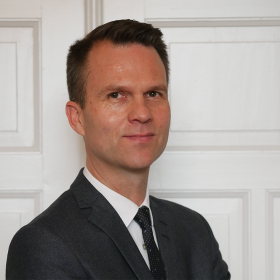
Frederik, European Commission
“My name is Frederik and I come from Denmark. I am working in the area of transport (DG MOVE) of the European Commission.
In DG MOVE, as one of the only sectorial DGs of the European Commission, we work on a variety of aspects from environment and social matters to infrastructure, and from state aid to economic regulation. DG MOVE is therefore a DG that offers many opportunities to work in different areas, to learn and to develop.
I very much enjoy working in DG MOVE, with colleagues of all nationalities and with experts in many areas. We also work closely with the industry, member states and other stakeholders, which all together gives a rich and varied job environment.”
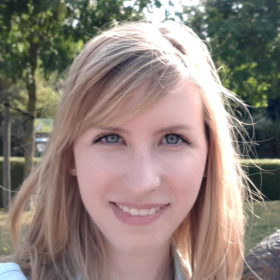
Krisztina (European Economic and Social Committee)
“I have been working for the European Economic and Social Committee (EESC) since 2016. I work at the Section for Economic and Monetary Union and Economic and Social Cohesion and within our unit, I first worked on policy issues related to the Capital Markets Union and for the past two years, I have been working on the economic policies and in particular, the Economic and Monetary Union.
Our institution is one of the consultative bodies of the Union. The members of the EESC represent the organised civil society of Europe and with the opinions they draft, the EESC feeds into the European policy-making process the views, concerns and recommendations of civil society. My job is to support the EESC members in writing opinions on topics related to the EU's economic policies. For my work, I have to be up-to-date about the economic policy developments in the EU, follow the progress on legislative files at the Commission, the Parliament and the Council and be aware of the relevant research in academia, think tanks and the position of civil society organisations. I also organise meetings, public hearings or conferences, and establishing contacts with relevant stakeholders. Every day, I feel like I am at the heart of European policy-making and of building a resilient, sustainable European economy. What I love about my job is its diversity and that it constantly challenges me to stay on top of my game.”
